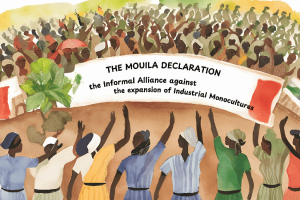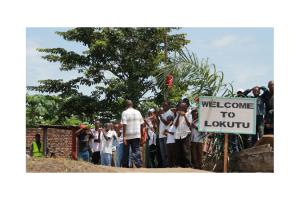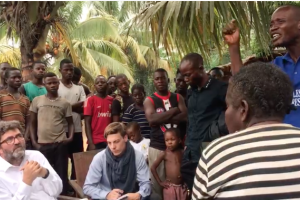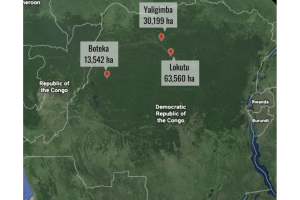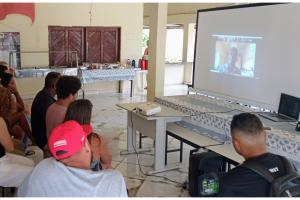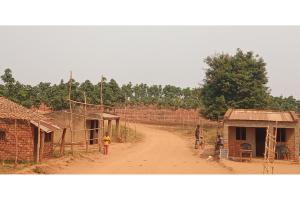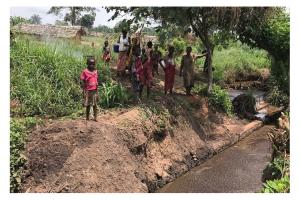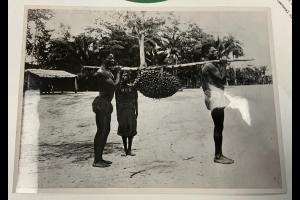Struggles Against Tree Monocultures
Corporate profit drives land grabs to install industrial tree monocultures. Where industrial plantations take root, communities' territories and lives are violently invaded, their forests destroyed and their water polluted. When communities resist, companies tend to respond with aggression. Despite this extreme violence, communities around the world are resisting, organizing and joining forces to defend their territories. Every September 21 the International Day of Struggle against Monoculture Tree Plantations is celebrated.
Bulletin articles
15 December 2024
The just-released “Mouila Declaration” is a message of resistance, solidarity and unity from communities and grassroots organisations of the Informal Alliance against the expansion of Industrial Monocultures.
Bulletin articles
24 October 2024
Besides the direct impacts on communities’ lives, eucalyptus monoculture plantations represent absurd and obscene inequality. A group of 45 community people with whom we spoke was shocked to learn that it would take them 2,300 years of non-stop work to collectively earn the same amount that a single Portuguese family, one of the owners of the plantation company they work for, earned in one single year from the profits of their shares in the company.
Articles
10 May 2024
The president of the Tshopo provincial assembly supports the call of international NGOs demanding to pause a mediation process between the oil palm company PHC and communities affected by its oil palm plantations. Since 2018, the mediation has not addressed the communities’ demand for investigation of the (il)legality of the concessions at the basis of the companies palm oil business but has led to increased the violence and put community rights at the plantation sites in Lokutu and Boteka, in neighbouring Equateur province, at risk.
Articles
6 May 2024
On 1 April 2024, eight representatives chosen by communities from Lokutu, in the Tshopo province of the DR Congo, to represent them in the mediation process with the oil palm company PHC presented a letter rejecting the outcome presented by the mediation.
Articles
4 April 2024
An alliance of organizations have demanded that European governments pause the mediation process and provide the communities access to the land documents and legal support to defend their interests.
Action alerts
20 November 2023
Collective statement, 20 November 2023
Bulletin articles
25 October 2023
Exchanges between activists put the voices of those who fight to defend their territories at the center of the conversation. In September, members of communities from Brazil and Mozambique united their struggles and connected their histories once again, helping to strengthen solidarity in the fight against industrial tree plantations.
Bulletin articles
30 March 2023
At the foot of Mount Mabu, Mozambique, the expansion of rubber tree monoculture plantations has restricted Manhaua communities’ access to their own territory. This process has occurred by means of systematic abuses, thus depicting the contrast between the different ways the population and foreign capital relate to the environment where they find themselves.
Action alerts
24 February 2023
Other information
16 January 2023
In September 2022, two large contingents of national police and military were dispatched to oil palm plantation concession areas of the Plantations et Huileries du Congo (PHC) in Lokutu and Boteka.
Bulletin articles
11 October 2022
This bulletin highlights materials and analysis related to communities’ struggles against industrial tree plantations. It also pays homage to communities in DRC struggling to get their lands back from an oil palm company since colonial times. Their courageous struggle showcases the multiple layers of oppression and violations that result from the plantation model.
Bulletin articles
23 March 2022
Many oil palm plantations’ concessions in West and Central Africa were built on lands stolen from communities during colonial occupations. This is the case in the DRC, where food company Unilever began its palm oil empire. Today, these plantations are still sites of on-going poverty and violence. It is time to end the colonial model of concessions and return the land to its original owners.
